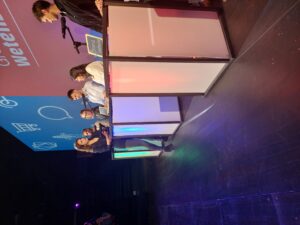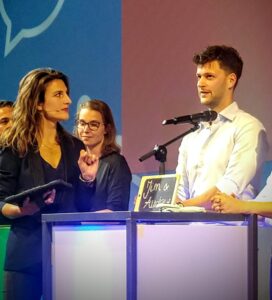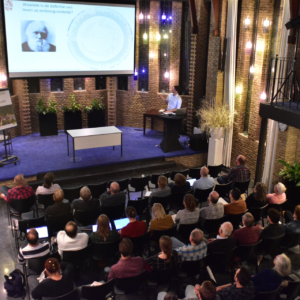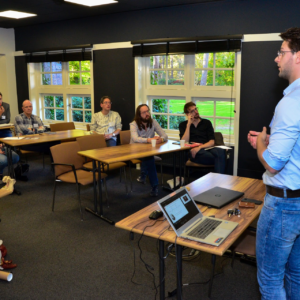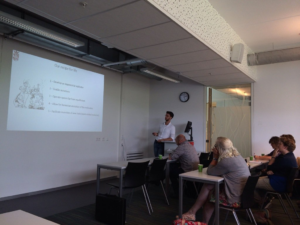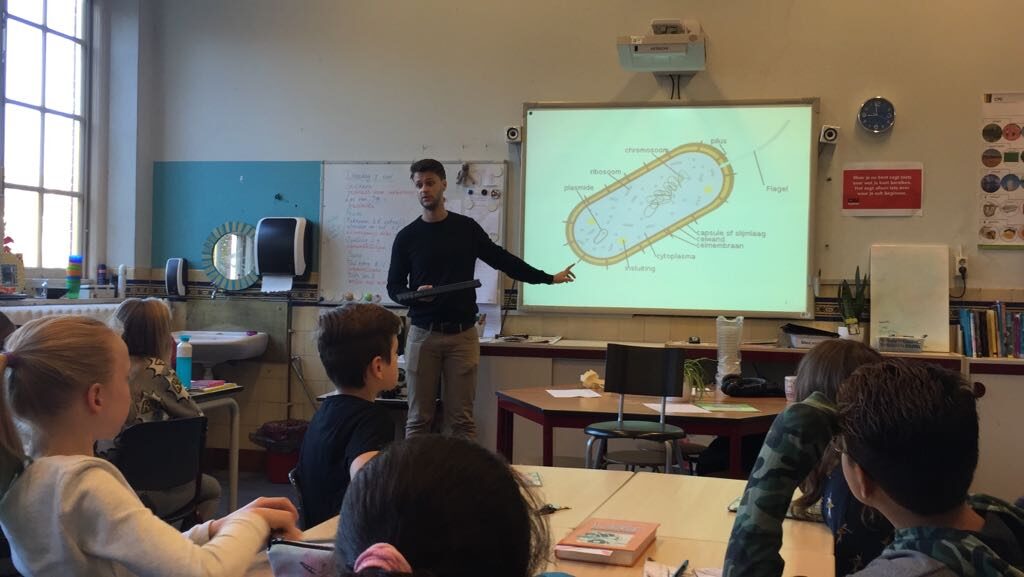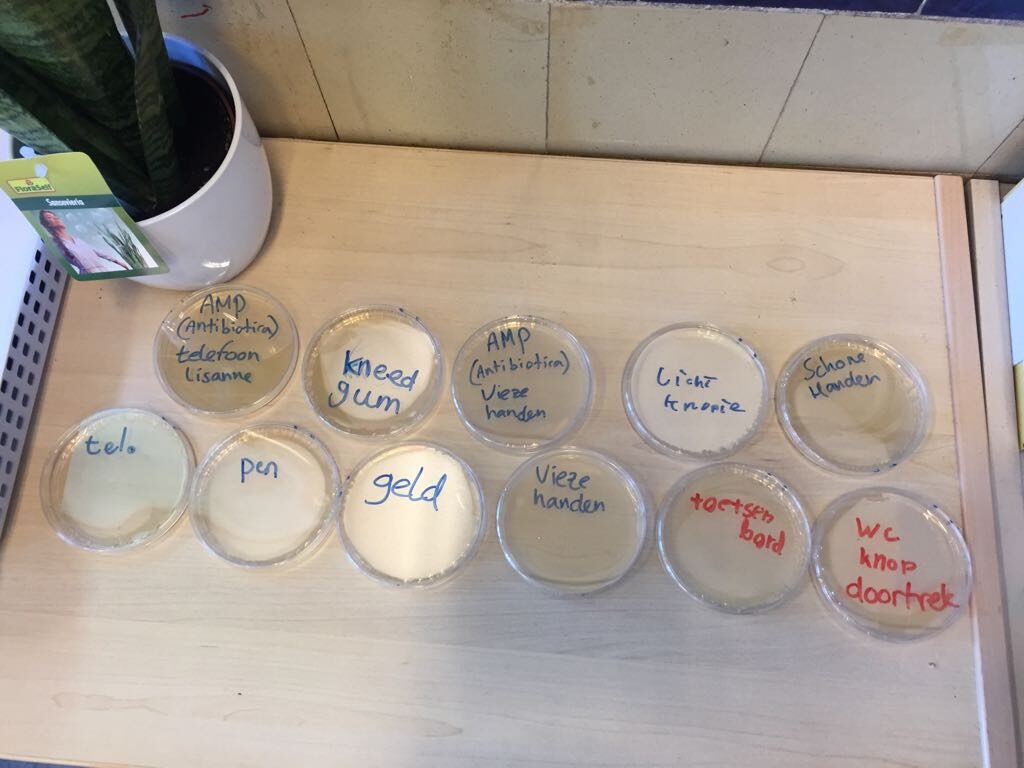Animations explaining our work on Self-Replicators
Videos of lab members
- Marcel Eleveld had the occasion, throughout his Master and PhD studies in our group, to talk at several general-public events about what we do in the Otto group. In 2018 he won the audience award at the national final of the FameLab science communication competition, where early-career scientists have to give a 3-minute presentation about a scientific topic for a layman audience. Marcel explained there one of the fundamental problems in the origin of life: Eigen’s paradox. In january 2019 he gave also an introduction to the origin of life-problem (i. e. explaining what properties are required for something to be called “alive”) and how our group tackles unsolved challenges in the field (how could polymeric RNA have formed from its (monomeric) building blocks on the prebiotic earth?) at TEDx-Alkmaar (YouTube). More recently, he participated also at the 3 minutes thesis competition Groningen 2022 – 3 min and a slingle slide only to explain your PhD thesis!
- Watch a popular-science YouTube short video about Omer Markovitch’s, a postdoc in our lab, research project: Self-replicating systems are likely to have played a central role in the origin of life. The goal of the project is to learn principles related to the emergent behaviour we call ‘life’, from different classes of self-replicating systems including synthetic chemical replicators, RNA viruses and bacteria. This will be achieved by investigating the diversification and adaptive potential of each system and by identifying common evolutionary principles and differences between them.
Noorderlab – The science podcast for the (dutch-speaking) general audience
Our post-doc Jim Ottelé has been working together with Science LinX and the KNG to bring this project to life in 2022: Noorderlab, a podcast where researchers from the University of Groningen tell what they do and what motivates them. The idea is to make people from the region aware what is been done with public (i. e. their) money at the University, thus the talks are held entirely in dutch.
Groninger Wetenschapsquiz
Jim Ottelé developped questions as an editor of the Groningen Science Quiz in 2021; in 2022 he ended up being a participant having to answer himself such questions. A fun and instructive event for everyone!
High-school teaching
Jim Ottelé has been explaining about systems chemistry and the origins of life to school teachers. He has done so part of the Woudschoten Chemie conference aimed at chemistry teachers interested in learning about state-of-the-art research (2019, 2018), and part University of Groningen’s continued education programmes for chemistry high-school teachers (link).
Short lecture at a locally organized festival
Jim Ottelé, a postdoc in our lab, has presented at Noorderzon 2018 festival about our quest to create synthetic life, and why that shouldn’t scare people.
University Museum exhibit
We prepared an exhibit for the exhibition “Nobel Science. Feringa, Zernike and the Groningen tradition”, which ran from the 26th of January until the 29th of May (2017) in the University Museum. We made a replica of the experimental setup in which we create our self-replicating molecules (see below) and added electron microscopy images of the self-replicators that we observe in our experiments. The Universiteits Krant (University Newspaper) made a small impression which can be seen here, and some pictures can be found below. Additional information and online exhibition guides can be found on the University’s website.

Experimental setup for creating self-replicating molecules in our lab
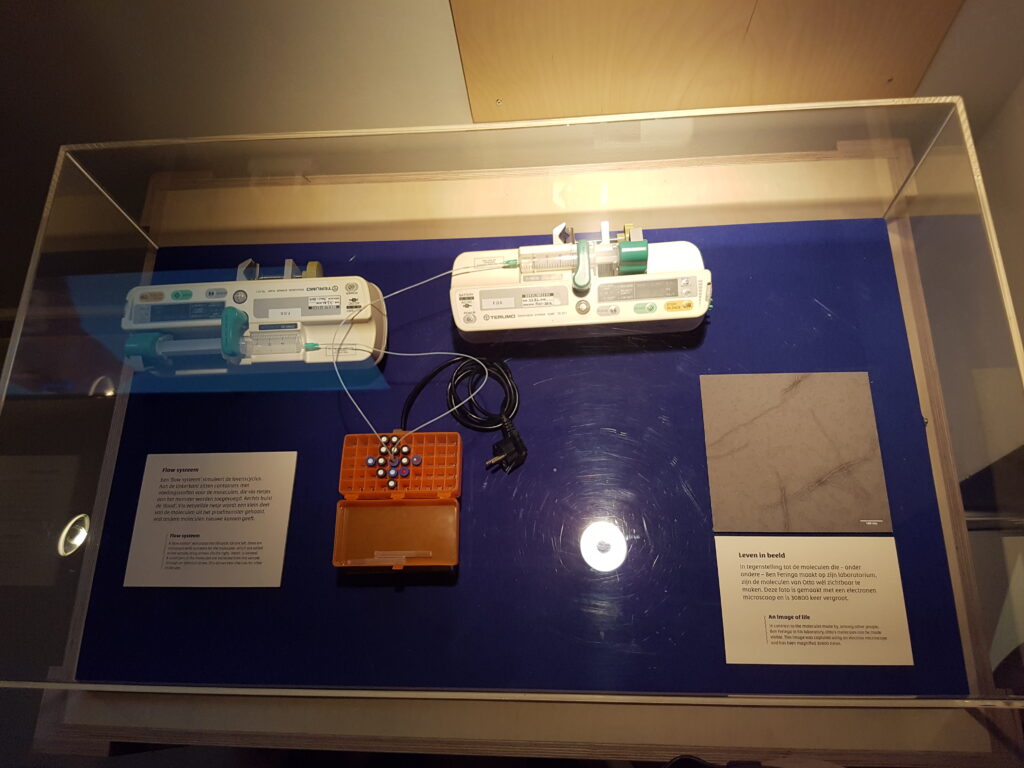
Picture of the corresponding exhibit in the museum
Elementary school teaching
We visited a local elementary school (De Borgmanschool) with materials (agar plates) so the school children could perform experiments to see whether or not there are bacteria on various surfaces. One of our PhD students gave a short talk, explaining how to perform those experiments and the importance of working cleanly. Pictures taken by various elementary school teachers can be found below.
On the 24th of February 2017, we participated in a so called AMA (ask me anything), which was hosted by the Reddit Science community. These AMA’s are a nice way to bring together scientists and the general public, and lead to new ideas and nice discussions. The Reddit Science subreddit has close to 18 million subscribers, so a wide audience is reached by this type of outreach. The Winnower was so kind to permanently archive our AMA, which can be found either here or downloaded as a pdf.
Sijbren Otto
Further outreach activities include lectures by Sijbren Otto to different audiences ranging from young children (“De Jonge Onderzoekers”) to the general public (Kenniscafé) to learned societies (Diligentia, Natuurkundig Genootschap).
V100 – Checking the annual report of the Dutch government
More than just science communication! Jim Ottelé was selected for 2022’s Verantwoordingsdag as one of the 100 scientists asked to assess the annual report of the Dutch government. They were tasked with developing critical questions related to government expenses, which effectively translates to policy. Jim’s team was looking at how the government was improving the sustainability of financial markets (it wasn’t effectively).
- ‘Het maken van leven is niets mystieks’, an interview with Sijbren by Yannick Fritschy for New Scientist (February 2023, in Dutch).
- Groningen lab makes life out of nothing: “you don’t find the molecules of our system in living cells”, an interview of Armin Kiani (PhD student) by Bas den Hond for Trouw (July 2022, in Dutch).
- A sign of life: University of Groningen scientists reaches milestone in search for artificial life, an interview with Jim Ottelé (PhD student) by Frank von Hebel for the Dagblad van het Noorden (July 2020, in Dutch).
- Chemistry and Biology are not Seperate Worlds, an interview with Omer Markovitch, a postdoc in our lab, by Esther Thole for nemokennislink (May 2019, in Dutch). English translation.
- Wikipedia ‘hackathon’ (Oct. 2017).
- Possible precursor of life on Earth pops up in lab from Groningen, by Maarten Keulemans, Volkskrant newspaper (Jan. 2016)
- A gift from heaven, by Lucas Brouwers, NRC newspaper (Jan. 2016)
- Artificial life made in Groningen, by Paul Schram, Een Vandaag TV (Jan. 2016)
- Move over Charles Darwin! Scientists watch molecules EVOLVE in real time and this may provide clues to how life began on Earth, by Ryan O’Hare, Mail Online (Jan. 2016)






